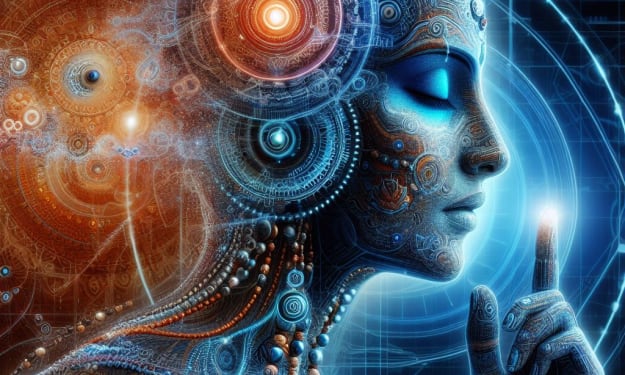The Complexities of Love:
Exploring Its Many Forms, Cultural Influences, and Impact on Human Life.

Love is an emotion that has been captivating human beings for as long as our species has existed. It is a feeling that transcends cultural, linguistic, and temporal boundaries, and it has a profound impact on our lives. In this comprehensive exploration of love, we will delve into its myriad forms, the influence of culture on our understanding of it, and the profound ways in which love shapes human existence.
Section 1: The Different Forms of Love:
Romantic Love: At the heart of many great stories, songs, and poems lies romantic love—the passionate, often intense emotion that draws individuals together in intimate relationships. It is a force that has driven people to compose symphonies, write sonnets, and cross continents in pursuit of love. Biologically, romantic love is associated with a surge of hormones, including oxytocin, dopamine, and serotonin, which contribute to feelings of attraction and attachment.
Romantic love is an ever-evolving phenomenon, shaped by cultural and societal influences. Modern notions of romantic love often prioritize personal choice and compatibility, whereas historically, marriages were often arranged for economic or social reasons.
Familial Love: Love within the family unit is one of the earliest and most enduring forms of love. It encompasses the bonds between parents and children, siblings, and extended relatives. Familial love is a complex interplay of affection, support, and sometimes, conflict. It plays a pivotal role in shaping an individual's sense of identity and belonging.
The love between parents and children, often referred to as parental love, is characterized by selflessness and unconditional care. It is the foundation upon which a child's emotional and psychological development is built.
Platonic Love: Platonic love is the profound affection that exists between friends. While it lacks the romantic or sexual elements of other forms of love, it is no less significant. Platonic love is often characterized by deep emotional connections, trust, and companionship. Friends provide support, camaraderie, and a sense of belonging, making platonic love a vital aspect of human relationships.
Self-Love: Self-love, often overlooked or misunderstood, is the practice of valuing and caring for oneself. It involves self-acceptance, self-compassion, and self-care. Self-love is essential for mental and emotional well-being. Individuals who practice self-love are more likely to set boundaries, make healthy choices, and maintain positive self-esteem.
While self-love can be nurtured through various practices, such as mindfulness and self-reflection, it is not always easy to achieve. Many people grapple with self-doubt, self-criticism, and the demands of external expectations. However, learning to love oneself is a journey worth embarking upon.
Universal Love: Universal love, also known as agape love, transcends individual relationships and extends to all living beings. It is often associated with spiritual or philosophical beliefs that promote compassion, empathy, and goodwill towards humanity. Universal love encourages individuals to look beyond their differences and cultivate a sense of interconnectedness with all of humanity.
Philosophers and religious leaders throughout history have extolled the virtues of universal love. In Christianity, it is expressed through the commandment to "love thy neighbor as thyself," while Buddhism emphasizes the importance of compassion for all sentient beings.
Section 2: The Cultural Influences on Love:
Cultural Perceptions of Love: Cultural norms and values profoundly influence how love is perceived and expressed. Different cultures have their unique ways of defining and experiencing love, which can include dating customs, marriage traditions, and expectations within relationships.
For example, in some cultures, arranged marriages are the norm, where families play a significant role in matchmaking. In contrast, others emphasize individual choice and romantic love as the foundation of marriage.
Literary and Artistic Representations: Love has been a recurrent theme in literature, art, music, and cinema across the world. These creative mediums provide a canvas for exploring the depth and complexity of love in its various forms. Iconic love stories like Shakespeare's "Romeo and Juliet" and films like "Casablanca" continue to captivate audiences.
Artistic representations of love offer a glimpse into the human experience, showcasing the ecstasy of love's heights and the depths of its tragedies. Artists and writers have used their works to reflect, challenge, and shape societal perceptions of love.
Religion and Love: Religion often plays a significant role in shaping attitudes and behaviors related to love. Many faiths incorporate love as a central tenet, promoting love for one's neighbor, compassion, and forgiveness.
For instance, in Christianity, love is considered one of the highest virtues, and the New Testament teaches the importance of love and forgiveness. In Hinduism, the concept of "Bhakti" emphasizes devotion and love for the divine.
Language of Love: Language itself can reveal cultural nuances in the expression of love. Different languages have unique words and phrases that capture the subtleties of affection and attachment. For example, the Greek language distinguishes between several types of love, including "eros" (romantic love), "philia" (friendship love), and "agape" (unconditional love).
Exploring these linguistic distinctions provides insight into how different cultures conceptualize and communicate the complex emotion of love.
Section 3: The Impact of Love on Human Life:
Emotional Well-Being: Love significantly contributes to emotional well-being. Experiencing love, whether romantic, familial, or platonic, is associated with feelings of happiness, security, and contentment. Love provides a sense of belonging and emotional support, helping individuals cope with life's challenges.
Research in psychology has shown that strong, positive relationships are linked to lower levels of stress, depression, and anxiety. Love's ability to foster emotional resilience and psychological well-being underscores its importance in human life.
Social Bonds and Community: Love is a potent force that strengthens social bonds and builds communities. Familial love forms the foundation of societies, creating networks of support and interdependence. Friendships founded on platonic love contribute to the formation of close-knit communities.
Beyond individual relationships, love promotes unity on a larger scale. Acts of love and compassion toward strangers and the broader community are essential for fostering a sense of solidarity and social cohesion.
Love and Health: The influence of love extends even to physical health. Numerous studies have shown that individuals in loving and supportive relationships tend to experience better health outcomes. Love, particularly in the form of strong social connections, is associated with improved heart health, a boosted immune system, and even increased longevity.
Love's healing properties are not limited to romantic relationships; they extend to close friendships and familial bonds. Supportive relationships can buffer individuals from the negative effects of stress and promote overall well-being.
Challenges and Complexities: While love brings immense joy and fulfillment, it is not without its challenges and complexities. Heartbreak, jealousy, and unrequited love are experiences that can cause emotional pain and distress. Coping with the loss of love or navigating the intricacies of complicated relationships can be emotionally taxing.
Additionally, cultural and societal expectations surrounding love can sometimes create conflicts and pressures, particularly when they clash with individual desires and preferences.
Conclusion:
In conclusion, love is a rich and multifaceted emotion that influences every aspect of human life. It comes in various forms, from the passionate intensity of romantic love to the deep bonds of familial love and the enduring companionship of platonic love. Cultural influences shape how love is perceived and expressed, revealing the diversity of human experiences.
Love has a profound impact on emotional well-being, social bonds, and even physical health. It is a force that builds communities, fosters unity, and brings happiness to individuals and societies alike. However, love is not without its challenges and complexities, and navigating its nuances can be both rewarding and challenging.
Despite its intricacies, love remains a fundamental aspect of the human experience, binding us together, enriching our lives, and reminding us of our shared humanity. Exploring the complexities of love allows us to appreciate its depth and significance in the tapestry of human existence, making it a subject of endless fascination and exploration for generations to come.
About the Creator
Muftau Ishaq
"Passionate article writer 📝 | Wordsmith who crafts engaging stories from complex topics | Connecting with readers one article at a time 🌟"
Enjoyed the story? Support the Creator.
Subscribe for free to receive all their stories in your feed. You could also pledge your support or give them a one-off tip, letting them know you appreciate their work.






Comments (1)
Wonderful piece.